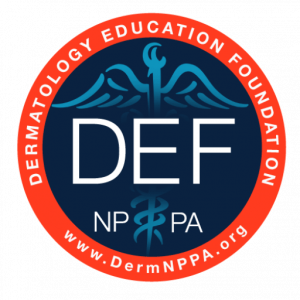Dear Colleagues,
In this edition of Clinical Consideration, we look at the effects skin diseases can have on the social experiences our younger patients, specifically as it relates to bullies, and what we as NPs can do to help. We also examine some of the key psoriasis studies from this past year. Finally, a wearable patch for peanut allergies takes advantage of epicutaneous immunotherapy technology and may minimize the need for traditional allergy shots.
Atopic Dermatitis (AD) is a target for school age bullies! Recent National Eczema Association survey revealed that children with inadequately controlled AD experienced bullying at school and as a result, 77% of those children expressed lower self-esteem. The psychosocial sequela of skin disease should be evaluated in children with eczema. Proactive and adequate treatment of the visible disease needs to be combined with an investigation of the psychosocial status of AD patients may lead to improved outcomes. Dr. Pallor sheds more insight into this scenario and offers suggestions on how Providers can help….
Are you doing your patients with psoriasis a disservice? Dr. Andrew Blauvelt from the Oregon Medical Research Center suggests that you may be if you are not discussing Biologic therapy with patients experiencing moderate to severe psoriasis. Emerging data and evidence suggest an association between cardiovascular disease and metabolic syndrome. Psoriasis on the skin is a manifestation of a systemic inflammatory process in which IL-17A is a key driver. Targeted systemic therapeutic biologic agents, such as IL-17A inhibitors, are indicated to address the systemic inflammatory condition of moderate to severe plaque psoriasis which is known to more just a skin condition. See Dr. Blauvelts article to learn more…..
Epicutaneous immunotherapy (EPIT) may take the Sting out of “Allergy Shots”. A wearable skin patch was used to expose study participants to the allergen in an approach called (EPIT). Children aged 4-11 may represent the sweet spot for peanut allergy desensitization as they achieved the highest rates of success. EPIT technology represents a potential breakthrough in immunotherapy via a patch, as opposed to the traditional “allergy shot.”
Best,
Joe Gorelick, MSN, FNP-C, Dermatology Education Foundation Founder and Chairman
